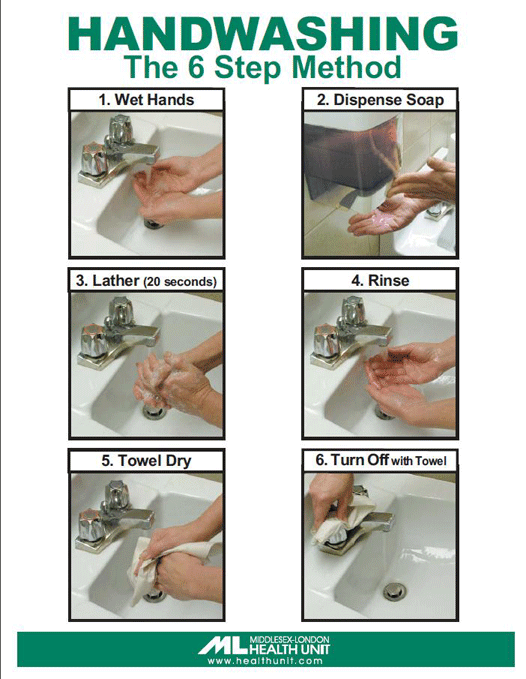Contact Us
For more information, please contact the Infectious Disease Control Team:
- 519-663-5317
What is MRSA? MRSA is a type of bacteria, Staphylococcus aureus (S. aureus), which has become resistant to certain antibiotics. S. aureus is a bacteria that lives on the skin and in the noses of healthy people. It is a common cause of skin and soft tissue infections in hospitals and in the community. Most skin infections are minor (like pimples and boils) but Staphylococcus bacteria can cause more serious infections including wound infections, blood infections and pneumonia.
MRSA can affect people in two different ways - colonization or infection. If a person carries the organism in their nose and on other parts of the body with no signs of illness, they are colonized. If the person shows signs of illness, they are infected.
 MRSA Fact Sheet (PDF 80KB)
MRSA Fact Sheet (PDF 80KB)For more information, please contact the Infectious Disease Control Team:
Outbreaks of MRSA have been documented in hospitals, correctional facilities, military training camps, and on sports teams where close skin contact, cuts or abrasions on the skin, crowded conditions and poor hygiene may be present. While hospital-associated strains tend to infect people who are ill, elderly and/or immunocompromised; community-associated strains have been known to cause skin and soft tissue infections in younger healthier people like athletes and military recruits.
MRSA is spread from one person to another by direct contact, usually on the hands of caregivers and/or by contact with objects contaminated by the skin or body fluids of an infected person. It is not spread through the air like the common cold or flu. The bacteria can be present on the hands of people who are colonized with MRSA or people who have come in contact with MRSA. Handling contaminated objects such as facial tissues, athletic equipment, bar soap, and towels can also spread the bacteria.
People who carry MRSA with no illness do not require any special medical treatment. If a person becomes ill, their health care provider will determine the appropriate treatment, which may include draining an infected wound and/or prescribing antibiotics. Hospitalization may be needed for more serious infections.
To prevent the spread of MRSA infection:
Cleaning your hands is the single most effective way to control the spread of MRSA. The use of liquid soap and water with paper towels and/or the use of waterless alcohol-based hand rubs are very effective in removing organisms from the hands and preventing spread of the bacteria to others.
 The 6 Step Method of Handwashing (PDF 96KB)
The 6 Step Method of Handwashing (PDF 96KB)
It is important for everyone, including people with MRSA, to practice careful personal hygiene such as daily showering with soap and using clean towels. Regular changing and washing of clothes is also important.
Items such as bar soap, towels, bed linens, razors, sports equipment, and drug equipment should not be shared.
Shared environments like showers and beds, as well as athletic uniforms, and equipment should be cleaned routinely and additionally when soiled with body fluids. Ensure that the product used to clean is labeled with the word ‘disinfectant’ and follow the manufacturer’s instructions for use.
People with open sores or wounds should keep them covered with a clean bandage and infected wounds should be assessed by a healthcare provider. Bandages should be properly disposed of in the garbage.
People with MRSA should not be restricted from moving freely throughout their home and the community. If a person has draining wounds, or has a tracheostomy with uncontrolled secretions, special precautions may be necessary.
Laundry including clothing, towels, and bed linens may be laundered in the same manner as the rest of the household laundry. MRSA bacteria are destroyed during the normal laundering process and all garbage cans can be put out for normal pick-up. No special cleaning of furniture or items like dishes is required.